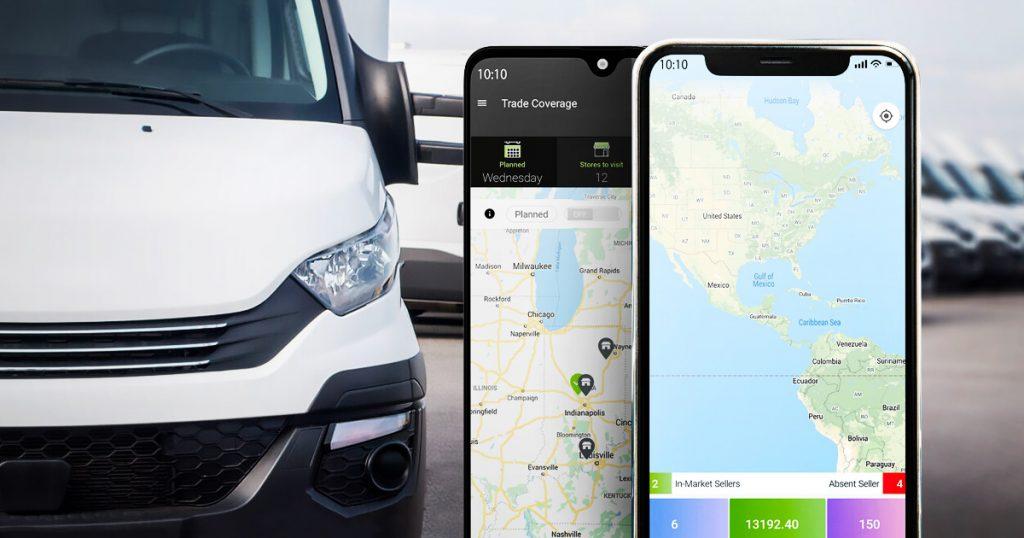Accounting is the lifeblood of any business. It’s the mechanism that keeps track of finances, manages expenses, and ensures financial stability. For businesses involved in distribution, accounting takes on a unique form known as route accounting. This specialized branch of accounting focuses on optimizing the dispatch, delivery, invoicing, billing, and return processes for products distributed across specific routes and schedules.
Efficiency and accuracy are very important for business, especially in the modern world. The traditional pen-and-paper or spreadsheet-based accounting systems are no longer sufficient for businesses that rely on distribution networks. And this is where route accounting software will come in. But what is route accounting software, and is it a necessity for your distribution business?
What is Route Accounting?
Route accounting is a subset of field service software tailored specifically for distribution businesses. It revolves around managing the intricate web of tasks associated with dispatching, delivering, tracking, invoicing, billing, and handling product returns within a defined time and geographical area. The purpose of route accounting is to improve a business’ operations. It’s also designed to reduce costs, make things more efficient, and enhance customer service.
In essence, route accounting goes beyond conventional financial accounting by addressing the unique challenges faced by distribution companies. It introduces a level of precision and automation that ensures products are delivered on time, routes are optimized to save valuable travel time and fuel, and adherence to delivery deadlines is maintained. To achieve these goals, businesses turn to route accounting software, a comprehensive solution designed to tackle the complexities of distribution.
What is a Route Accounting Software?
When you say route accounting software, it is the program that allows businesses to implement and execute route accounting effectively. It’s a powerful tool that automates key processes, providing real-time insights into delivery schedules, inventory management, financial tracking, and more. Here are some essential aspects of route accounting software:
1. Sales Tracking
Route accounting software allows businesses to track sales data accurately. Sales representatives and delivery personnel can access pricing information, inventory status, sales history, and promotional details in real time, enabling them to upsell products and serve customers more efficiently.
2. Inventory Management
Having efficient inventory management is important in distribution. And a route accounting software can help businesses have accurate records of the products they have, which will reduce the risk of running out of stocks and lessening any wastes.
3. Financial Tracking
Route accounting systems provide robust financial tracking capabilities, ensuring accurate reporting and analysis. It’s designed to make it easy for businesses to make the right decision and maintain financial stability by providing proper financial information.
4. Invoicing and Billing
The software streamlines the invoicing and billing process, automating tasks such as invoice generation, reminders, and tracking. It simplifies payment processing and enhances cash flow management.
5. Route Optimization
One of the primary functions of route accounting software is optimizing delivery routes. It calculates the most efficient routes, taking into account factors like fuel consumption, travel time, and delivery deadlines.
6. Customization
A route accounting software also provides businesses with flexibility in their customization options. This makes it easier for businesses to configure the system to what they need and require.
7. Reporting
Clear and straightforward reporting tools enable businesses to analyze data efficiently. Real-time reporting helps in making informed decisions and monitoring performance.
8. Online Customer Booking
Some route accounting software solutions offer online customer booking capabilities, allowing customers to book services or deliveries conveniently through websites or Google.
9. Mobile App
Many route accounting systems come with mobile apps for iOS and Android, enabling field technicians and delivery personnel to access the system on the go, even without an internet connection.
Are There Limits to Route Accounting Solutions?

While route accounting software offers a plethora of benefits, it’s essential to acknowledge that no system is perfect. There may be limits to what route accounting solutions can achieve. For instance, route optimization, although highly effective, may not account for unforeseen road closures or traffic congestion. Therefore, a degree of adaptability and human intervention is sometimes required.
It’s also worth noting that the route accounting software’s effectiveness is reliant upon the quality of the data provided. Incomplete or inaccurate data will likely lead to mediocre results. To maximize the benefits of route accounting, businesses must invest in data accuracy and employee training.
Do You Need It For Your Distribution Business?
Now that we’ve explored what route accounting software entails, the question remains: Is it a necessity for your distribution business? The answer largely depends on the nature and scale of your operations. If your business involves delivering products across multiple routes, managing inventory, optimizing routes, and ensuring timely deliveries, then route accounting software is more than just a luxury; it’s a strategic investment.
Consider the challenges faced by distribution businesses in today’s competitive landscape. Rising fuel costs, increased pressure on profit margins, and the need for accurate inventory management are just a few of the hurdles. With the help of route accounting software, you’ll have the necessary tools to face and overcome the challenges.
What Should You Consider When Looking for Route Accounting Systems?
Deciding on the route accounting software to get is important. Here are key factors to consider when evaluating route accounting systems:
- Features – Assess the features offered by the software, ensuring they align with your business needs. Look for comprehensive solutions that cover sales tracking, inventory management, financial tracking, invoicing, route optimization, and reporting.
- Integration – Make sure the system you’ll get can integrate with your current systems without issues. This includes contact platforms, CRM, etc. Integration enhances efficiency and data consistency.
- Scalability – Ensure that the chosen system can scale with your business as it grows. Scalability is essential for accommodating increased sales volumes and complexity.
- Mobile App – If your business relies on field technicians or delivery personnel, a mobile app for iOS and Android can be a significant advantage. It improves real-time communication and accessibility.
- Customer Support – The availability of reliable customer support is vital. Prompt assistance can resolve issues quickly and minimize disruptions to your operations.
- Customization – Look for systems that offer flexibility and customization options. Remember, the route accounting software you’re getting should be the one adjusting to the processes your business already have.
- Reporting – Assess the quality and simplicity of the reporting tools. Clear, real-time reporting is essential for informed decision-making.
- Online Customer Booking – If online customer booking is a priority for your business, ensure that the software offers this feature.
Final Thoughts
In the world of distribution, where timely deliveries and efficient operations are paramount, route accounting software emerges as a game-changer. It addresses the unique challenges faced by distribution businesses, offering solutions for route optimization, inventory management, invoicing, and more. While no system is without limitations, the benefits of route accounting software are undeniable for businesses looking to stay competitive and profitable in today’s dynamic landscape.
